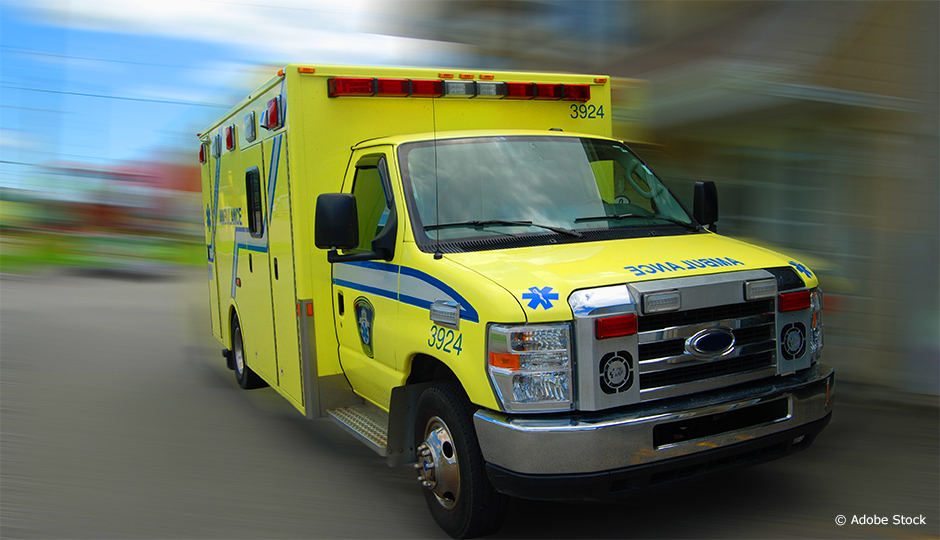Be careful out there! If you suffer an injury in rural Québec—in a car accident, for example—you are less likely to recover there than in the city. “For this type of injury, mortality in Québec’s rural emergency rooms is at least twice as high than in urban areas,” reveals Richard Fleet, who holds the Research Chair in Emergency Medicine at Université Laval and is currently leading a national study on inequities in emergency and trauma care in rural areas. The reasons that explain the shocking data are not yet entirely understood but the limited means and services in small rural hospitals may be to blame.
“For this type of injury, mortality in Québec’s rural emergency rooms is at least twice as high than in urban areas.”
While the situation is a matter of concern in Québec, it is more alarming in the rest of Canada. “There are huge gaps between provinces,” affirms Fleet. From coast to coast, less than 20% of rural hospitals have a scanner, a surgeon and an anaesthesiologist who are on call 24/7 and intensive care services. In Québec, the figure rises to 80%. And our 26 rural emergency rooms are the best equipped in Canada! However, with the health reforms, local specialists are exhausted because locum doctors are few and far between. Is the model sustainable in rural areas? “We must take action because nearly 20% of Québecers and Canadians live in remote locations,” explains Fleet. “Every year, there are approximately 4 million consultations in rural emergency centres across Canada, including 400,000 in Québec.”
Surprisingly, it is the first time that a researcher has looked into the reality of rural emergency rooms in such detail. Richard Fleet and his team analyzed epidemiological data from 70,000 patients admitted with traumatic injuries between 2009 and 2013 and also compared the equipment available in rural emergency departments across Canada and studied the deaths caused by heart disease and stroke in these healthcare centres. The researchers are now focusing their efforts on Urgences Rurales 360, a broad study that is mobilizing patients, citizens, decision-makers and healthcare professionals to collect their ideas to improve emergency care in rural areas. Richard Fleet will report on the results on April 18, 2018, at the very first summit on rural emergency care in Québec.




